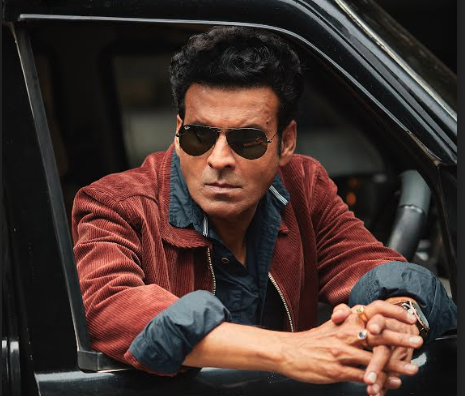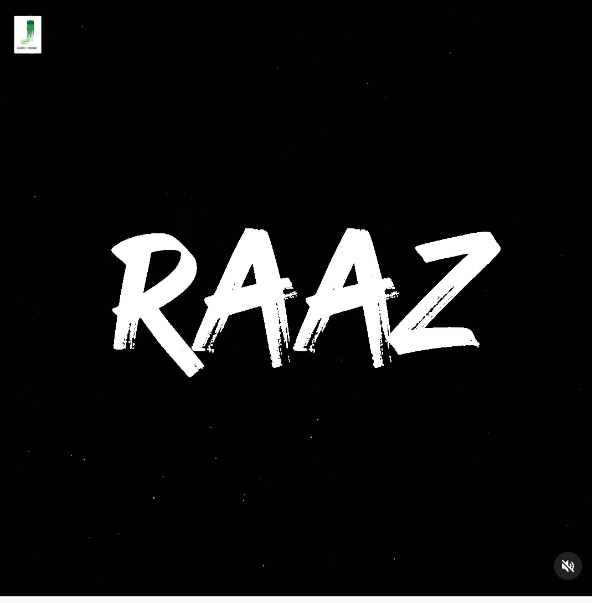NOIDA, India, Jan. 27, 2022 /PRNewswire/ — Macmillan’s guiding objective is to enhance education worldwide by supporting communities with innovative curriculum resources, which transform young people into educated, confident and responsible citizens of the country. Macmillan understands the potential of bringing disruptive transformation to learning and teaching environments, and in order to achieve that it invests in initiating debates around strengthening education, steering digital transformation, and supporting teachers. Publishing Prof. Aditya Mittal’s article is another step in that direction.
Role of entrance examinations in academic autonomy of higher educational institutions
Any discussion on premier institutions of higher education in India does not escape a mention of their respective entrance examinations for earning admission into them. Regardless of whether these entrance examinations rely on “selection-of-few” or “elimination-of-many” from amongst examinees, they are primarily aimed at avoiding infiltration of human corruptibility into admission systems based on qualitative assessments. The purely quantitative nature of selection procedures, without any interference from “personal contacts” and/or influence, offered by entrance examinations more than makes up for their limitations; especially in a society like ours struggling continuously to rid itself of corruption. However, entrance examinations for admission to premier higher education institutions in the country, are considered by some to be a cause of academic stress in our educations system. Unfortunately, this is a misconception.
Entrance examinations: A statement of purpose aligning institutional goals with goals of pupil
Institutions of higher education have specific sets of goals in their respective preambles and/or vision/mission statements. In an ideal scenario, excellence is attainable only if the specific goals of these institutions are aligned with goals of pupil enrolled in these institutions and vice-versa. Therefore, in order to achieve and/or maintain excellence, academic institutions are entitled to select their students without external interference; with a minimal standard of pre-requisite training and education required for these students to first comprehend and then contribute to the educational pursuits at (and of) their respective institutions. Thus, entrance examinations conducted by institutions as selection procedures for their incoming students are an integral part of their academic autonomy. These examinations not only assess the examinees for their basic preparedness to be able to deal with specific/individual curricula of institutions, but also serve as a window of suitability of the institutions to the goals of the examinees (not be confused with their aptitude). As a matter of fact, any proposals to create a single examination or selection procedure for admission to different institutions is preposterous at best. Such proposals (a) completely disregard the individual visions, missions and objective functions of academic institutions while thrusting them with labels of similarity thereby stripping them off their academic autonomy, and, (b) simply mislead the society into assuming that there are no distinct educational goals of these institutions.
Basically, forcing educational institutions to adhere to a single centralized entrance examination for admissions does not allow academic institutions to introspect on, and devise admission processes in line with, their distinct academic identity and educational goals. In context of the above, the bruhaha over multiple examinations putting more pressure on students is completely unfounded. In fact, setting up of a Joint Seat Allocation Authority (JoSAA) in 2015 for the IIT and NIT systems has already proven the effectiveness of examinees exercising their choices for (a) appearing in different number of independent entrance examinations, and, (b) obtaining strictly-merit-based admission in an educational program/institution of their choice depending on the entrance examination(s) they choose to appear in. This system has also proven to drastically reduce vacancies in premier Indian institutes.
Interactions with school children (and their parents) through various avenues (e.g. outreach initiatives of Macmillan Education, IIT Delhi) clearly indicate that while some are clear about their individual educational aspirations, extremely few are actually aware of distinctions in premier Indian institutions. Thus, multiple entrance examinations, each with a different flavour (clearly reflective of respective systems), provide multiple exploratory chances to those searching for their own niche. The analogy is no different from kids in a candy store – either force a kid to eat only one kind of candy by removing all variety or allow a kid to choose whatever candy they feel will satiate their craving. Eventually most kids will settle on their respective choices. Similarly, students with unclear/developing aspirations, get a chance to test the suitability of specific academic institutions to their own aspirations through individual, multiple, entrance examinations.
Examination systems: Setting benchmarks in educational systems
A common view is that examinations are supposed to test knowledge or aptitude of examinees. However, another significant feature of examinations is that they set benchmarks for development of critical/analytical thought processes and imparting conceptual knowledge (along with its possible applications, depending on the subject matter). If none of the examinees perform well in an examination, it reflects on the failure of the educational system rather than the ability of examinees. Thus, examinations do serve as mirrors to education systems. Examinations, more than evaluating students, ideally focus on evaluating “health” of the system itself, by setting attainable benchmarks of conceptual understanding, with emphasis on certain areas/fields/subjects.
This brings to fore the challenges in a national education system that allows creation, nurturing and realization of diverse dreams and aspirations. After all, an education system with the aim of “no child left behind” while simultaneously identifying and nurturing the “gifted” (or those willing to work hard to become the “gifted”) to excel in their respective “gifts” is not straightforward. Of course, here it is pertinent to appreciate that every single child is in fact “gifted” in some way or the other – it is an explicit task of an education system to be able to allow each child to recognize and extract their individual “gift” or even develop a “gift” de novo (for some this may happen sooner, for others this may happen later in life). Thus, the first step in this direction is clearly defining the “objective function” of an educational system and benchmark it via suitably designed examinations. If the objective function is “no child left behind” then there is no escaping from examination results exhibiting a skewed (possibly multimodal) normal distributions with large variances. Such single examination systems cannot provide adequate evaluation parameters for serving as screening mechanisms for distinct higher education institutions with distinct goals, in fact they often lead to “educonomic inflation” (see https://etinsights.et-edge.com/project-based-learning-controlling-educonomic-inflation/). In this regard, examinations conducted by/in national education systems, that are driven by “no child left behind” systems do not have the bandwidth to segregate diverse interests, aptitudes and fortes in/of examinees. Alternatively, any entrance examination created for admission to particular institution(s) is limited in its extent to identify (or “screen”) examinees with a minimal background preparation that is aligned with the goals of that institution. Therefore, unfortunate conclusions as “failed examination systems” are simply a way of brushing aside the real challenges associated with evaluations and admission processes without proper thought.
While no entrance examination or system of selection is perfect, every system strives towards it; to continuously evolve it requires through faculty commitment towards design of admission processes as well as in-class interactions. As an example, for several decades now, both the patterns and contents of IIT entrance examinations, with the current avatar being JEE (Advanced), continue to serve as benchmarks for developing specific analytical abilities that can be extracted from the NCERT material utilized by CBSE. These examinations are an example of a “thankless” national duty, that results in creation of un-recognized “Intellectual Property” of (and by) the IIT system which continues to provide benchmarks required for (a) obtaining a suitable education from an IIT, and, (b) achieving academic excellence in STEM education. These benchmarks are in form of examinations known for originality, creativity and analytical strengths of their contents. Most importantly, these examinations are meticulously designed to specifically serve only the IIT system especially towards exercising its academic autonomy in admitting students without (even possibility of) external intereferences/influences.
The point is that sincere commitment is required at every stage in a national education system to ensure that educational goals of each stage are benchmarked appropriately by suitably evolving examinations. On the contrary, development of a single (entrance) examination by “experts” having no direct investment into diverse institutional goals for which they are creating such examinations, is equivalent to asking cricket umpires to serve as selectors for the national football team. Thus, any proposal to do away with examination systems due societal misconceptions are akin to suggesting that it is better for a society to live in poverty for controlling thefts. Additionally, single centralized examinations (in the name of reducing examination stress) also threaten creation of a hierarchy in Indian education – in which institutions are “rated”, not on their individual educational niches, rather on the “ranks” or “scores” in a single examination of those who enrol into them.
Finally, it needs to be acknowledged that a promise of financially rewarding employability (akin to sweetness in candies), rather than educational growth or skill development (akin to nutritional benefits of candies), is a key parameter for the general population in their aspirations of admission into an academic institution. That said, it is a major responsibility of educational institutions to also have a clear picture of how their graduates are expected to contribute to the society – thereby making the final goals clear to admission aspirants. Just assuming that mere establishment of any “premier” institution(s) will impart an education that magically (a) puts food on the table of their graduates, and/or, (b) creates intellectual contributors in society, is absurd at best.
About Dr. Aditya Mittal:
Dr. Aditya Mittal is a Professor at IIT Delhi and one of the founding faculty of the Kusuma School of Biological Sciences at IIT Delhi. He played a significant role in the implementation of the MHRD (now MoE) Govt. of India’s IIT-PAL (Professor Assisted Learning) initiative and is a former Chairman of JEE(Advanced) at IIT Delhi. Having played a key role in transition of JEE(Advanced) from a paper-based to a computer-based test, he was also instrumental in implementation of policies pertaining to increasing enrolment of female students in the IIT system. He works with Macmillan Education India on school outreach in the field of STEM education and contributed to the development of ALTURA (Advancing Learning and Teaching Using Resources and Assessment) which is a LMS based collaborative learning solution for schools and young learners. The focus is on project-based-cross-curricular approach to learning hence helping children to develop 21st century skills of cooperation, critical thinking and creativity.
About Macmillan Education:
With a hefty list of accolades associated with its name, Best Education Brand 2020, to name one, Macmillan Education is the preferred partner of choice for leading educational institutions in India, be it for content, training or assessment.
Macmillan Education India (MEI) produces curricular resources in both print and digital form and offers assessments along with teacher training. MEI has been in the school and higher education market in India for over 125 years and is today partnering with over 15,000 schools and reaching over 10 million learners. It is quite probable that every child from a private school in India would have read Macmillan Education content at some stage of life.
Know more about Macmillan at: www.macmillaneducation.in
About Springer Nature:
Macmillan Education is a part of Springer Nature, a leading global research, educational and professional publisher, home to an array of respected and trusted brands providing quality content through a range of innovative products and services. Springer Nature is the world’s largest academic book publisher, publisher of the world’s most influential journals and a pioneer in the field of open research. The company numbers almost 13,000 staff in over 50 countries. Springer Nature was formed in 2015 through the merger of Nature Publishing Group, Macmillan Education and Springer Science+Business Media.
Photo: https://mma.prnewswire.com/media/1735294/Aditya_Mittal_Macmillan_Education.jpg

 News Wire2 months ago
News Wire2 months ago
 News Wire2 months ago
News Wire2 months ago
 News Wire1 month ago
News Wire1 month ago
 News Wire4 weeks ago
News Wire4 weeks ago
 News Wire4 weeks ago
News Wire4 weeks ago
 News Wire2 months ago
News Wire2 months ago
 News Wire2 months ago
News Wire2 months ago
 News Wire2 months ago
News Wire2 months ago












You must be logged in to post a comment Login
You must log in to post a comment.